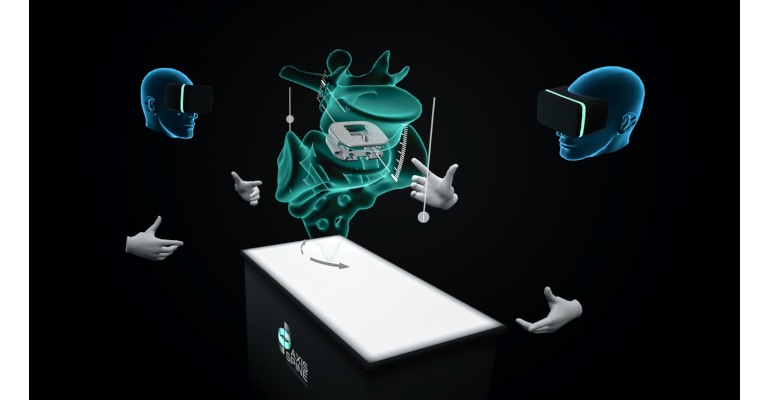The VR platform helps surgeons determine how to combine three customizable components to produce implants suited to individual patients.
April 13, 2022

Seymourpowell and Axis Spine Technologies have teamed up to offer a virtual reality (VR) solution for creating spinal implants. The two partners have developed a modular system that surgeons can use to assemble an implant for each individual patient. They are also working toward a new approach for pre-operative planning and in-surgery product support using both VR and augmented reality (AR).
The Seymourpowell-designed and coded VR platform utilizes digital twin technology to support implant construction and instrumentation concepts. The implants consist of three customizable components that can be combined to produce implants suited to individual patients. Such modularity gives surgeons options for intra-operatively selecting the best implant for the patient, the partners reported in a news release.
“We conceived the implant not only from a functional standpoint, but a logistical and emotional perspective, too," explained Nick Sandham, associate director at Seymourpowell, in the release. "While modularity is a great enabler for bespoke patient solutions, we had to be mindful not to alienate surgeons with unfamiliarity, or healthcare institutions with complexity. On the contrary, we took great care to develop an elegant solution to make surgery simpler, safer, and more streamlined for everybody involved.”
Added Craig Bunyan, associate director and lead of the creative technology team at Seymourpowell: “Using VR as the lynchpin for communication and collaboration during the design process expedited early design decision making. It also laid the foundation for an interactive VR customer engagement tool which Axis is using to showcase the key benefits and teach procedural nuances of the implant system.”
The approach could help prepare nurses and surgeons for surgeries in the future. “This kind of immersive education can also have substantial benefits for patients. Without any form of medical training, complex procedures and narratives can be confusing, as well as extremely daunting. Being able to articulate key messages through a clear, compelling and consistent multimedia experience will help better set patient expectations and play an important part in the future of healthcare,” shared Jon Arcos, CEO & Founder at Axis Spine Technologies.
About the Author(s)
You May Also Like


